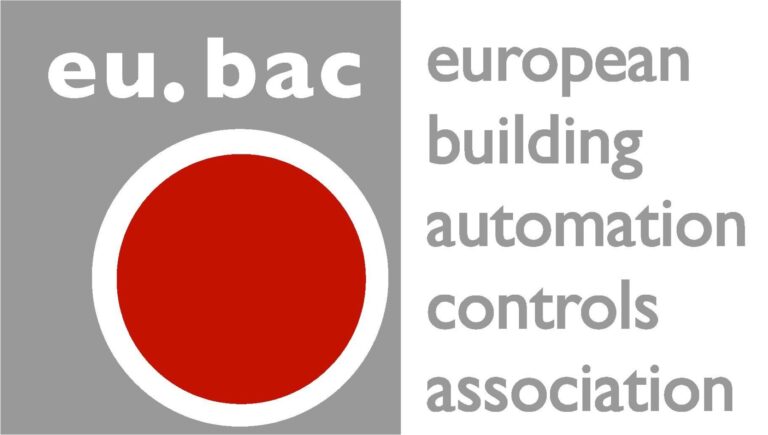2016.09.26 Report EU survey BAC at national level

On 29 September 2016, eu.bac, together with MEP Peter Liese and the European Heat Pump Association (EHPA), organised a lunch debate on “The human dimension of energy efficiency in buildings”.
The successful event, which followed a first one on the same topic held on June in the European Parliament, took place in a Members’ Salon packed full with more than 50 participants representing European institutions, relevant sector associations, consultancies and academics.
The discussion, led by moderator Dr. Peter Hug, Managing Director eu.bac, started with an introduction by the co-host, MEP Peter LIESE, Member of the Committee on the Environment, Public Health and Food Safety (ENVI), who emphazised the crucial role that the European Building Automation and Controls industry can play in the framework of the upcoming Energy Efficiency Package. An ambitious review of the Energy Performance of Buildings Directive (EPBD) will help Europe delivering on its environment goals and, at the same time, bring more jobs, boost economic recovery and reduce long-term dependency on gas imports.
Mr. Paul Hodson, European Commission (Head of UNIT C3, DG ENER) pointed out that, even if Europe is on the right track to achieve 2020 environment goals, there are no evidences so far of behavioural changes regarding the use of energy-consuming products. What we really see is a change in the energy consumption but this is a consequence due to the choice made at the time of the purchase of the product. Ecodesign and energy labels were driving forces of this positive change.
Europe set very ambitious targets for the future and in order to reach them, the Energy Efficiency Directive should use technology to allow buildings perform better, fostering the use of better products for buildings. There is a need to integrate buildings and putting information in the hand of users, empowering them.
In this way, buildings will work better, guaranteeing people better health conditions, as well as reaping economic advantages for them.
Ms. Valentina Fabi, Researcher at the Politecnico di Torino, gave an insight on people behaviour linked to energy use, comfort and productvity.
She set out in details how smart building systems maximize people’s comfort and health while simultaneously minimizing consumptions. She also analyzed comfort theories and influencing factors, highlighting how Smart Buildings can combine energy, productivity and comfort, matching with occupants’ satisfaction in control feeling.
Lastly, she illustrated how persuasive communications (e.g. via mobile applications) can induce changes in human behaviour, helping buildings’occupants to understand better the impact of their behaviour and to manage efficiently energy consumption, especially in offices.
Mr. Stephan Kolb, Head of Industry Affairs Danfoss, focusing on the residential perspective, showed the impact that appropriate home controls could have on energy efficiency, bringing a saving potential of more than 22 Mtoe/Y by further empowering final customers of multi apartment buildings alone.
He also brought some examples on how the manual temperature regulation of radiators, still present in 50-100 mln dwellings, is not only inefficient but also inadequate under all conditions. The lack of heat in the upper parts of multi apartment buildings or the overheating caused by a good insulation in an apartment independent from heat supply/generator are only two cases of the several existent.
The revision of the Energy Efficiency should therefore ensure that homes could be equipped with these low-capital, fast pay-back controls.
Mr. Bertrand Deprez, VP EU Government Affairs Schneider Electric, walked the attendants through non-residential examples from the building automation and controls industry, putting things in perspective. Today there is a gap between what technology offers and what regulations require and in the future the world will keep becoming more electric, more connected, more distributed and more efficient. In this framework, the BAC industry can boost industries’ competitiveness, ensuring savings with low upfront investment and short pay back, while at the same time ensuring workers the best working environment.
Thus, the EPBD revision is the great chance to finally let the Building Automation Systems and Controls play a leading role in the renovation requirements and this entails incentivize non-residential building retrofits through mandatory efficiency targets and also removing anti-efficiency accounting rules for municipalities as well as for other parties.
In the fruitful debate that took place in the final part of the event, the attendants and speakers agreed that, despite all the existing distinctions between different consumers and products, the ability to continuosly monitoring the energy usage and the system efficiency is essential and irreplaceable and it should be accordingly supported by the legislator.
If from one side all agreed on the need of more incentives, from the other side the participants stressed how the differences between the residential and non-residential sectors should not be addressed with a “one-size-fits-all” approach.
The event was concluded with the wish to see soon a legislation finally able to foster the potential of the Building Automation and Controls and, doing so, empowering consumers in an effective, economic and efficient way, reducing consumptions and increasing efficiency.
2016.09.29 eu.bac lunch debate – The Human Dimension of Energy Efficiency in Buildings – Photos
